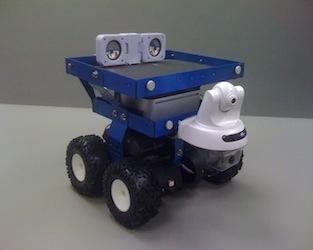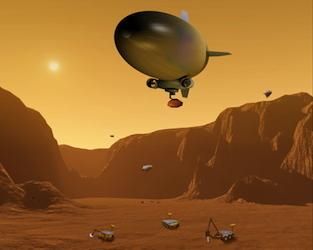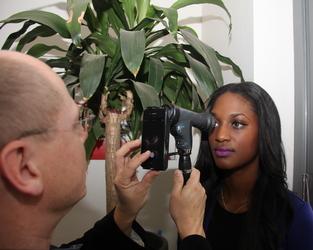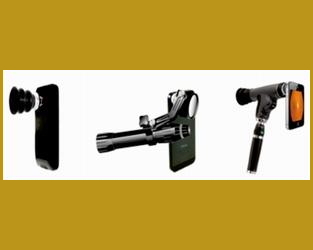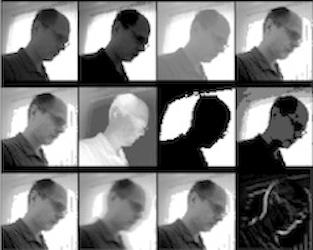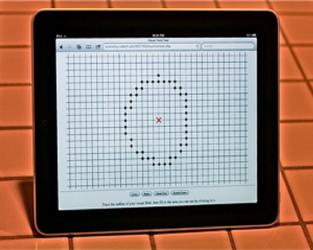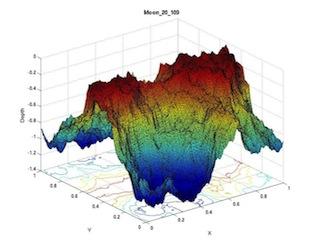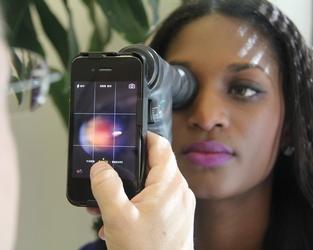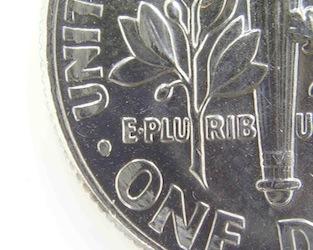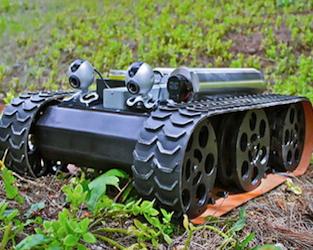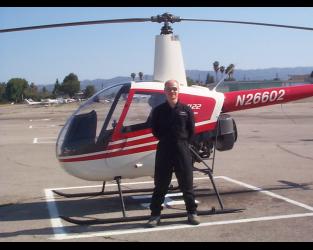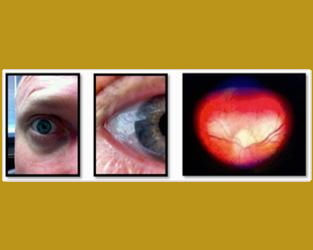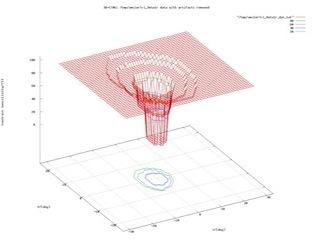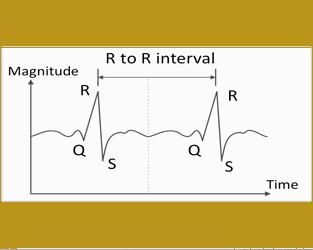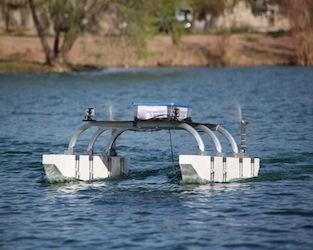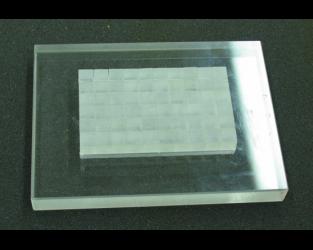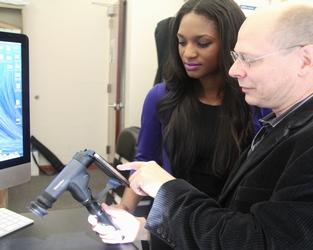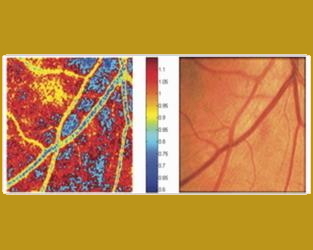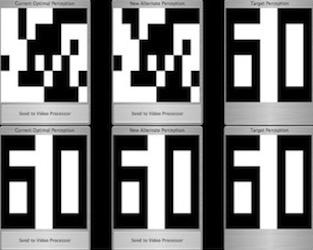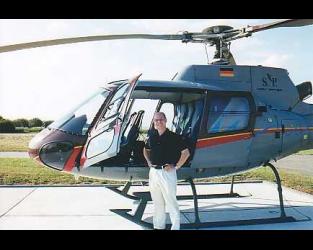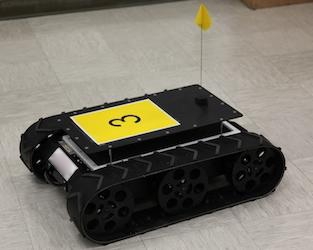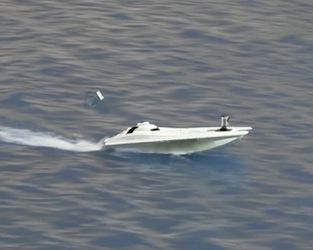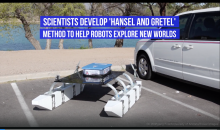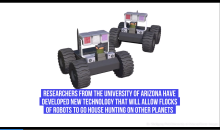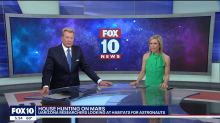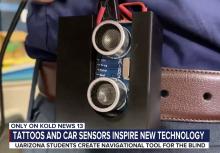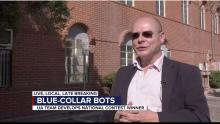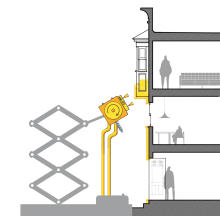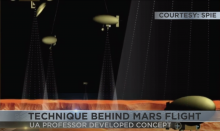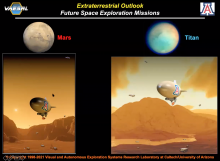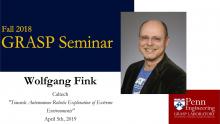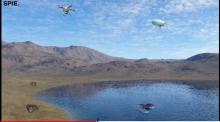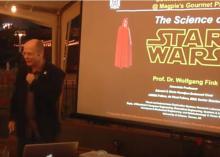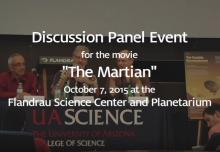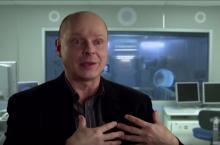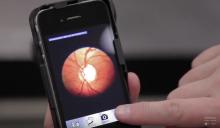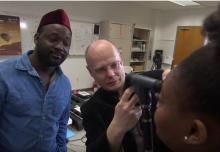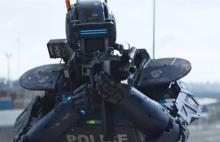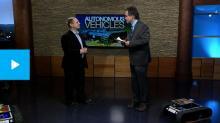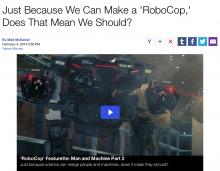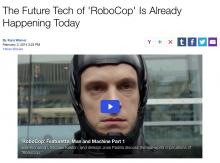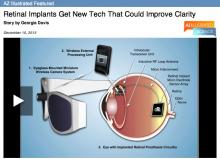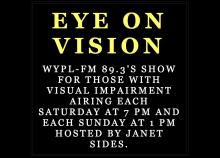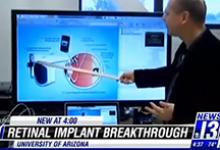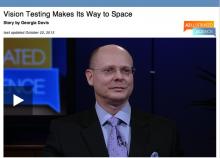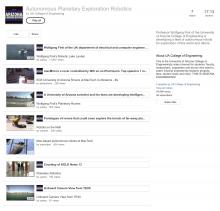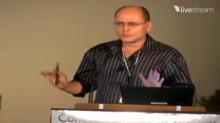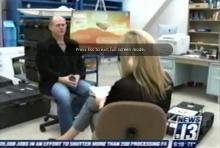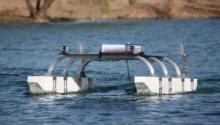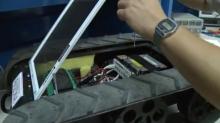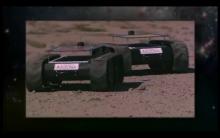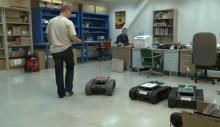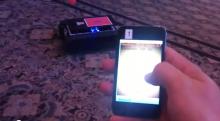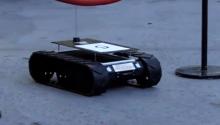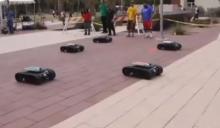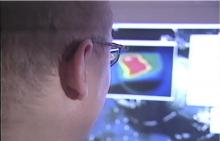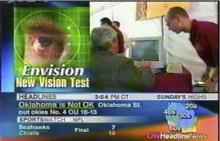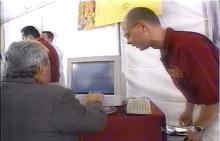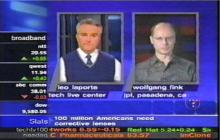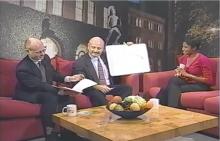Featured on Yahoo!Life: Researchers from the University of Arizona have developed new technology that will allow flocks of robots to go house hunting on other planets. Dr. Wolfgang Fink, an associate professor of electrical and computer engineering at UArizona, is the lead author of a new paper, that outlines how rovers, lake landers, and even submersible vehicles could communicate with each other over a network that could greatly expand our ability to explore planets.
Videos
Featured on Herald Sun Australia: Researchers from the University of Arizona have developed new technology that will allow flocks of robots to go house hunting on other planets. Dr. Wolfgang Fink, an associate professor of electrical and computer engineering at UArizona, is the lead author of a new paper, that outlines how rovers, lake landers, and even submersible vehicles could communicate with each other over a network that could greatly expand our ability to explore planets.
Prof. Dr. Wolfgang Fink featured on Fox 10 News Phoenix on: "House hunting...on Mars: UArizona researchers looking for suitable habitats for astronauts."
Prof. Dr. Wolfgang Fink and the Visual and Autonomous Exploration Systems Research Laboratory featured on KOLD News 13 on disruptive navigation technology he and his laboratory have devised to help visually impaired people move through the world more safely and efficiently: Visual Impairment Subtle Touch Aid (VISTA).
Prof. Dr. Wolfgang Fink was featured on KOLD News 13 on disruptive technology he and his laboratory have co-devised that has the potential to support retrofitting buildings with exterior insulation in an effort to reduce the carbon and energy footprint of the nation and the world.
Prof. Dr. Wolfgang Fink co-wins the $200,000 DOE/NREL-sponsored E-ROBOT Prize, an American-Made Challenge, to devise building envelope retrofit solutions that make retrofits easier, faster, safer and more accessible for workers. Here is the E-ROBOT Prize-winning video entry and the UArizona News Release.
Prof. Dr. Wolfgang Fink was featured on News 4 Tucson KVOA-TV regarding the historic first controlled flight of an aerial vehicle on another planet: Helicopter Ingenuity on Mars. Dr. Fink explained that this marks the first real-world embodiment of a paradigm he and his team devised in 2002 during his time at NASA's Jet Propulsion Laboratory (JPL) and Caltech: Tier-Scalable Reconnaissance.
Prof. Dr. Wolfgang Fink gave a colloquium at UArizona's Lunar & Planetary Laboratory (LPL) on how the paradigm of tier-scalable reconnaissance missions - an embodiment of which are NASA's Perseverance & Ingenuity on Mars - all started.
Prof. Dr. Wolfgang Fink gave invited Seminar on "Towards Autonomous Robotic Exploration of Extreme Environments" at the world renowned General Robotics, Automation, Sensing & Perception (GRASP) Laboratory at the University of Pennsylvania. Autonomous reconnaissance missions are called for in extreme environments, as well as in potentially hazardous (e.g., the theatre, disaster-stricken areas, etc.) or inaccessible operational areas (e.g., planetary surfaces, space). Such future missions will require increasing degrees of operational autonomy, especially when following up on transient events.
Dr. Wolfgang Fink is interviewed by SPIE's Jeff Braswell regarding tier-scalable reconnaissance, i.e., a disruptive paradigm shift in autonomous robotic space exploration.
The original series of the Star Wars movies in the 70's and 80's dazzled audiences with an array of fictional technologies, and many of those technologies are now part of our daily lives. Machines like space ships and space stations, powerful energy weapons, intelligent robotics, and sophisticated human prosthetics all seemed incredible when they appeared in the Star Wars stories. This interactive talk by Prof. Wolfgang Fink explores the connection between science fiction and science fact, map the technological landscape of where we stand currently, and look to where we might be going in the (not so) distant future "in a galaxy far, far away....".
The real star of the upcoming "Star Wars" movie may not be a human or a Wookie. Instead, it may be a round, 2-foot-tall astromech droid named BB-8. Associate Professor Dr. Wolfgang Fink, who is the inaugural Edward & Maria Keonjian Endowed Chair, comments on the droids of Star Wars in general and BB-8 in particular.
University of Arizona scientists who are experts on different aspects of Mars, including Wolfgang Fink, Alfred McEwen – who recently co-authored the NASA report finding strong evidence of flowing water on the Red Planet – and Gene Giacomelli, discuss the realities and fictions of "The Martian", the recently released movie starring Matt Damon. Susan Swanberg, distinguished science journalist and associate professor in the UA School of Journalism, moderates.
Wolfgang Fink, a University of Arizona associate professor at the College of Engineering, has developed an iPhone app designed to perform on-the-go retinal eye exams. The software can be used in the hands of a trained personnel, rather than an ophthalmologist, who simply takes an image of the patients eye using the iPhone camera. The image then gets sent to an intelligent software that assesses the image and returns it to the phone with a prognosis. The app focuses primarily on the back of the eye and will be able to detect diseases like glaucoma, macular degeneration, and diabetic retinopathy.
UA College of Engineering expert in artificial vision systems honored for his inventive and transdisciplinary research and teaching. Like many men of science, Wolfgang Fink works in diverse disciplines and enjoyed eclectic avocations. He is a physicist, an engineer, an educator, an inventor, a licensed helicopter pilot, and a classically tained pianist. You might call him a Renaissance man. Fink, associate professor of electical and computer eningeering and biomedical engineering and inaugural Edward & Maria Keonjian Endowed Chair at the UA College of Engineering, has been recognized as the da Vinci Fellow for 2015 - a major College of Engineering honor named for the ultimate Renaissance man. Each year, the College selects one member of the Engineering faculty as a da Vinci Fellow in recognition of excellence in teaching or research excellence. The award includes a one-time grant of $10,000 for research and teaching.
New technology that could help blind people to see greater in detail may soon be available in the United States. Tech Launch Arizona, the outreach arm created by the UA to spur partnerships between businesses and researchers, has applied for a patent for the new technology. Wolfgang Fink, a member of the joint U.S.-German research team developing the new technology, said current retinal implants allow people to see, but only basic, blurry shapes. "They can distinguish light from dark, and they may also be able to sort of localize where certain objects are and count them," said Fink, founder of the Visual and Autonomous Exploration Systems Research Laboratory at the California Institute of Technology and associate professor in the UA's College of Engineering.
Download Podcast of Telefon Interview with Dr. Wolfgang Fink conducted by Vance Durbin.
Outer space can be hard on the eyes. Exposure to radiation, intense and ultraviolet light, and low gravity cause blood to rise into the head. Because of this, 34 percent of astronauts experience some kind of vision change while in space. Testing vision while in flight, however, can be a challenge. Systems that test sight, to include peripheral vision, are bulky, making them impractical for space travel. "Most of these devices are actually at an ophthalmologist's office," said Wolfgang Fink, Ph.D., founder of the University of Arizona Visual and Autonomous Exploration Systems Research Laboratory. "So, in other words, they are not portable. One cannot self administer them."
Professor Wolfgang Fink presented on the Biological Oxidant and Life Detection Mission (BOLD) (PI: Professor Dirk Schulze-Makuch) at the NASA Workshop on "Concepts and Approaches for Mars Exploration" in Houston, TX. The BOLD proposal was chosen for oral presentation out of a total of 400 submitted abstracts. Astronaut Dr. Buzz Aldrin was also in attendance at the workshop.
The "BOLD" presentation starts at 53:20min.
Dr. Wolfgang Fink's "smart rovers" are featured in Chapter 4 of the PBS Wavelengths episode "The Thinking Machine" with Dr. Vicki Chandler (starts at 20:00min).



